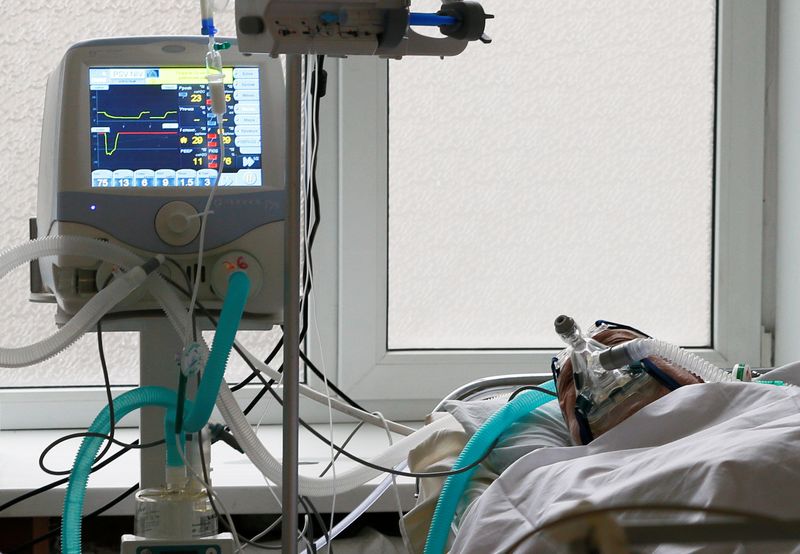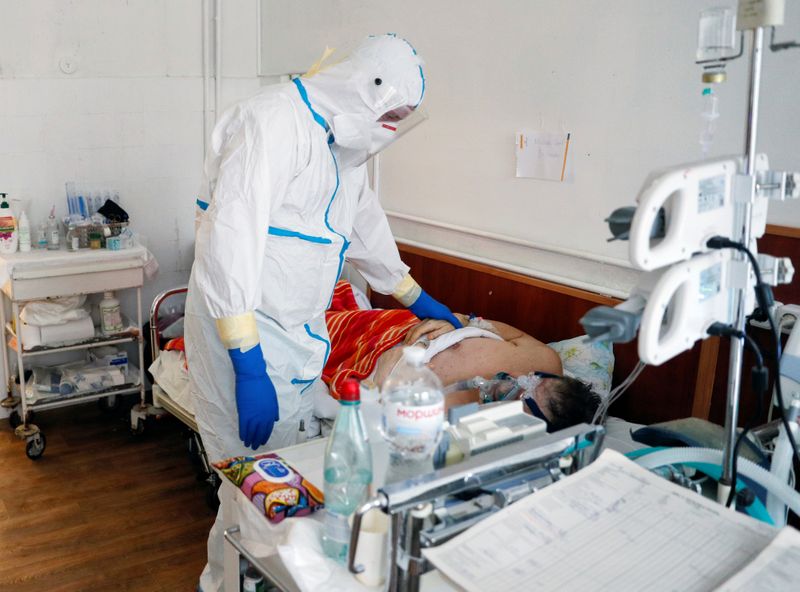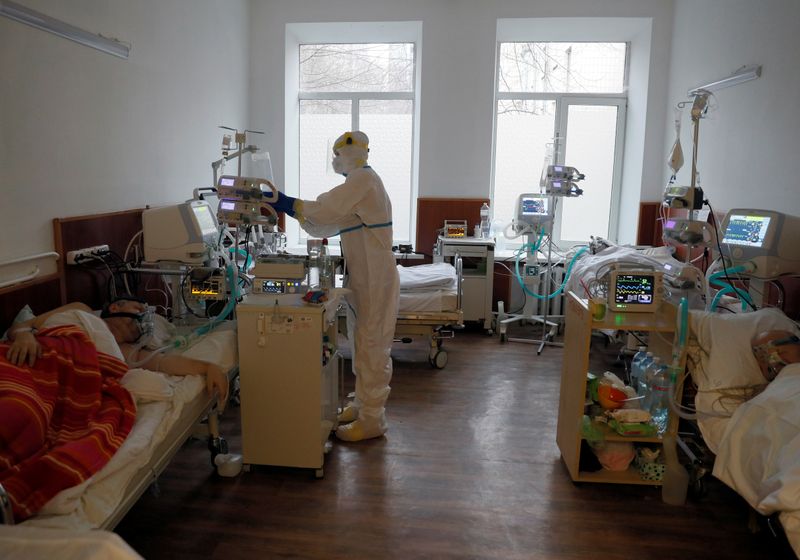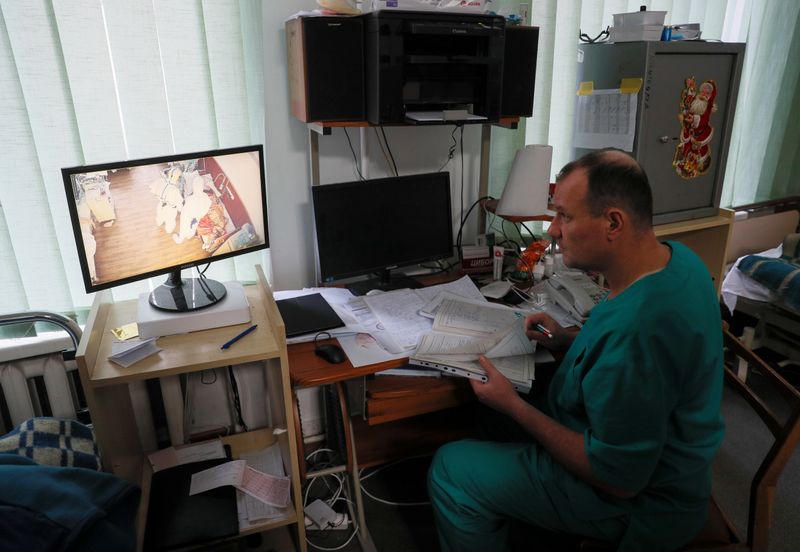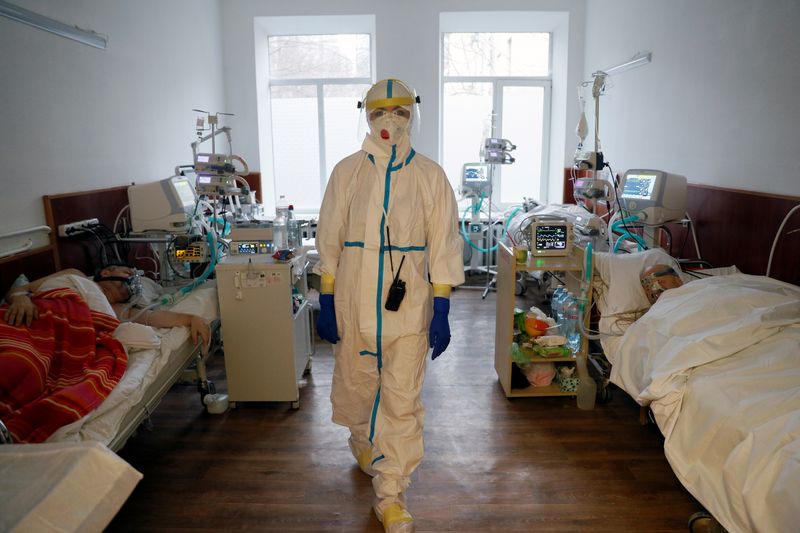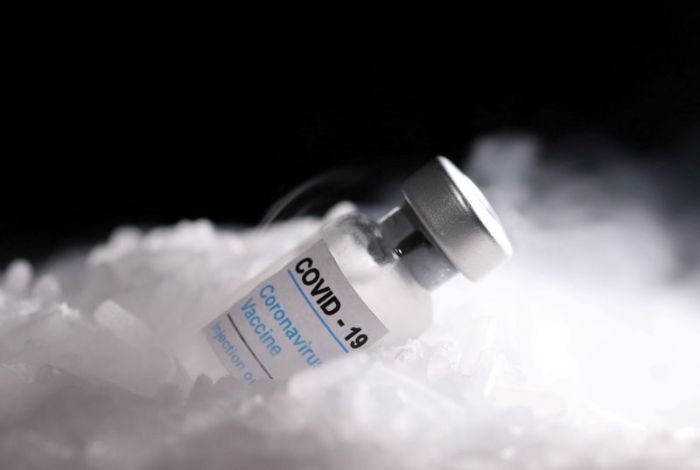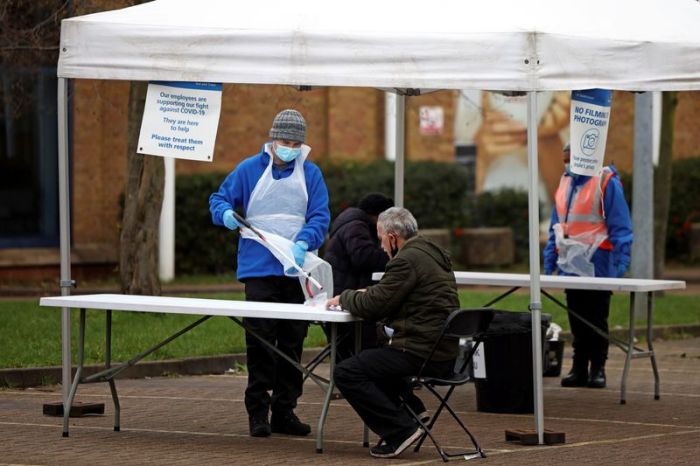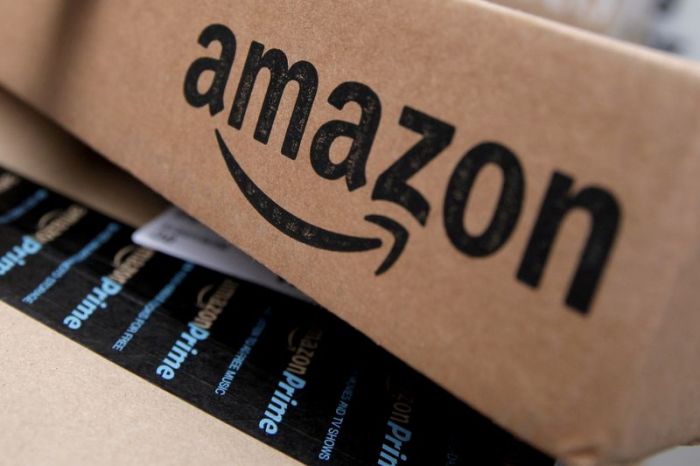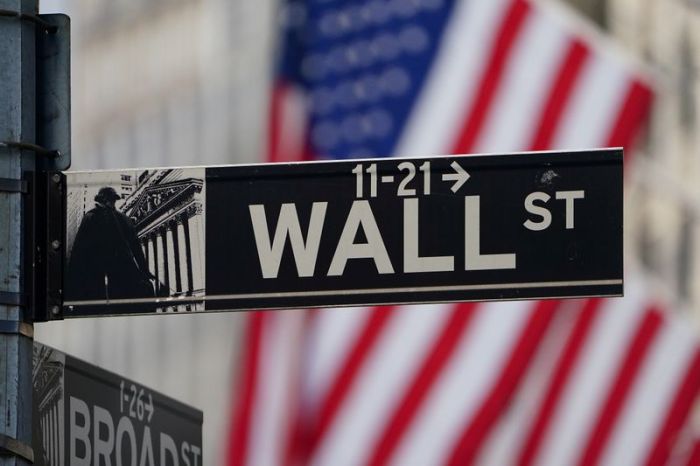KYIV (Reuters) – While vaccinations against the coronavirus gather pace in other parts of Europe, doctors at Kyiv City Clinical Hospital 17 are still waiting.
In the COVID emergency ward, three patients lie quietly on beds, breathing through ventilators. One has a portrait of himself, drawn by his grandson, pasted above his bed as a get-well-soon message.
Half the department’s staff have been infected at some point and there are still personnel shortages, according to department head Sergiy Dubrov.
“I don’t know all the details about the negotiations and all procurement procedures, but I can say as a simple doctor and as a Ukrainian citizen, that I don’t think that Ukraine did a great job,” said Dubrov, after tending to the patients.
“Why? Because many countries and our neighbours between them already have a vaccine and started vaccinations, but we haven’t.”
One of Europe’s poorest countries, Ukraine has found itself at the back of the continent’s vaccine queue, slower to procure them independently, unwilling to buy from Russia while publicly cajoling the EU for supplies for its 41 million people.
“We were asking the European Union several times to give Ukraine a certain quota of vaccine,” Health Minister Maksym Stepanov told Reuters. “We were ready to pay even more but they decided first to supply their own citizens with the vaccine.”
President Volodymyr Zelenskiy has appealed to the leaders of EU countries for help, while conceding that “this is very unpleasant to feel that you are standing there with your hand out”.
The EU, while embroiled in its own problems to secure supplies, said it was willing to help, which it has done so far by funding the global COVAX scheme supplying COVID vaccines to poorer countries, including Ukraine.
Ukraine plans to vaccinate 14.4 million people this year starting from February, when it expects 117,000 Pfizer-BioNTech doses through COVAX. It will also procure Chinese vaccines despite concerns about their efficacy.
A MATTER OF GEOPOLITICS
But progress could be slow. Ukraine and neighbour Moldova are the only countries in Europe likely to reach widespread COVID vaccinations only by 2023, said a report by the Economist Intelligence Unit.
The government and Ukraine’s independent medical procurement agency have traded blame over the speed of the rollout.
“I do think that Ukraine is a victim of the unequal distribution of vaccines,” said Lotta Sylwander, the country representative of UNICEF, which is working with COVAX.
Ukraine might have reacted too slowly but “it is a ferocious market out there”, Sylwander said.
With relations between Kyiv and Moscow toxic after Russia’s annexation of Crimea in 2014, Ukraine banned the use of Russian COVID vaccines.
That left Ukraine behind neighbours like Belarus, whose president played down the seriousness of the pandemic last year but was the first country outside Russia to register the Sputnik V vaccine.
Russian vaccines have also reached regions of eastern Ukraine controlled by Moscow-backed separatists.
In a call with EU Commission Chief Ursula von der Leyen last week, Zelenskiy said vaccines were a matter of “politics and geopolitics”.
“Accelerating the supply of vaccines can be a strong signal that the European Union is pleased to see Ukraine at the same table not only when everything is fine, but also in difficult situations,” he said on the call, according to a statement on Ukraine’s presidential website.
(Writing by Matthias Williams; editing by Emelia Sithole-Matarise)

